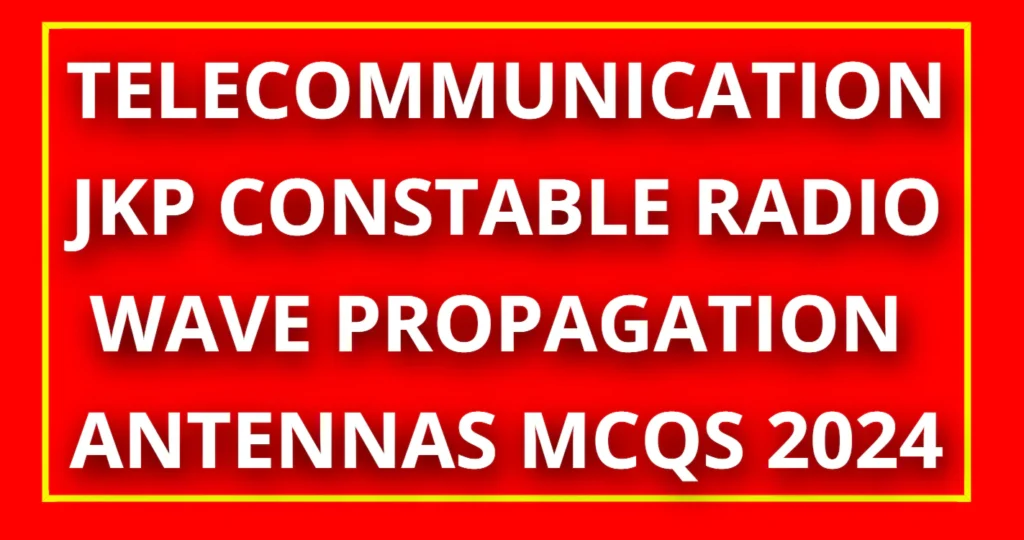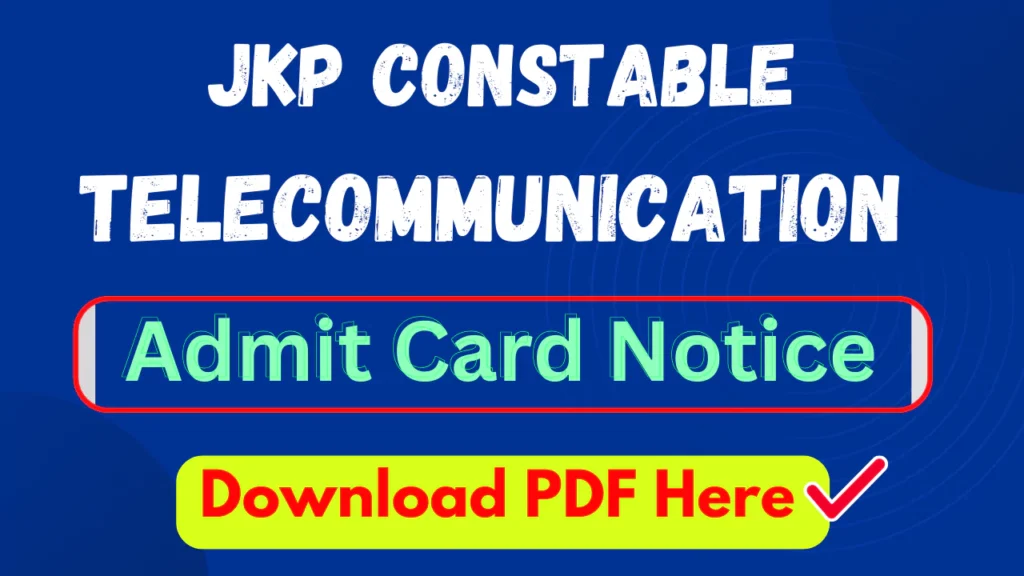Radio wave propagation is a key concept in telecommunications, describing how electromagnetic waves travel through different mediums. The process is essential for the functioning of radio, TV, mobile networks, and satellite communications. There are three primary types of radio wave propagation: Ground Wave, which follows the Earth’s surface and is used for AM radio; Space Wave, which travels in a straight line and supports FM radio, TV, and mobile communication; and Sky Wave, which reflects off the ionosphere and is crucial for long-distance communications like shortwave radio.
Antennas play a pivotal role in both transmitting and receiving these waves. Types such as Dipole, Yagi-Uda, and Parabolic Antennas are designed to focus energy, improve signal strength, and enhance communication efficiency over various distances.

Radio Wave Propagation & Antennas MCQs
1. What is radio wave propagation?
A) Transmission of sound waves
B) Transmission of light waves
C) Movement of radio waves from transmitter to receiver ✔️
D) Reflection of waves within the atmosphere
2. Which propagation type is used for AM radio?
A) Skywave
B) Space wave
C) Ground wave ✔️
D) Microwave
3. What is the frequency range for ground wave propagation?
A) Below 3 MHz ✔️
B) 3-30 MHz
C) 30-300 MHz
D) Above 300 MHz
4. Sky wave propagation relies on which atmospheric layer?
A) Troposphere
B) Stratosphere
C) Ionosphere ✔️
D) Mesosphere
5. Which wave type is most effective for long-distance communication?
A) Ground wave
B) Sky wave ✔️
C) Space wave
D) Surface wave
7. FM radio uses which propagation method?
A) Ground wave
B) Space wave ✔️
C) Sky wave
D) Surface wave
8. What is multipath fading?
A) Signals arrive directly
B) Signals take different paths and interfere ✔️
C) Signals are absorbed by the ionosphere
D) Signals travel via ground
9. Which propagation method is most affected by weather?
A) Ground wave
B) Space wave ✔️
C) Sky wave
D) Direct wave
10. Ionospheric fading mainly affects which frequencies?
A) Low frequencies
B) Medium frequencies
C) High frequencies ✔️
D) Ultra-high frequencies
11. Ground wave signals are strongest in which frequency range?
A) VHF
B) UHF
C) Medium frequencies ✔️
D) SHF
12. Sky wave propagation works best during:
A) Daytime
B) Nighttime ✔️
C) Afternoon
D) Morning
13. What causes space wave signals to be blocked?
A) Trees
B) Weather
C) Buildings ✔️
D) Ionosphere
14. Line-of-sight communication is associated with:
A) Sky waves
B) Ground waves
C) Space waves ✔️
D) Refracted waves
15. What is the typical range of VHF signals?
A) 30-300 MHz ✔️
B) 3-30 MHz
C) 300-3000 MHz
D) Above 3000 MHz
16. What is the main cause of ionospheric reflection?
A) Solar radiation ✔️
B) Earth’s magnetic field
C) Troposphere density
D) Weather
17. Space waves are used for which application?
A) AM broadcasting
B) Shortwave communication
C) FM radio ✔️
D) Ground communications
19. What is the primary advantage of sky wave propagation?
A) Long-distance communication ✔️
B) Low noise
C) Clear line-of-sight
D) Easy transmission
20. What is tropospheric scattering used for?
A) FM radio
B) Shortwave broadcasting
C) Microwave links ✔️
D) Ground wave communication
21. Which propagation type is dominant for TV broadcasting?
A) Ground wave
B) Sky wave
C) Space wave ✔️
D) Surface wave
22. Ground wave signals are limited by:
A) Frequency
B) Terrain and obstacles ✔️
C) Atmospheric conditions
D) Ionospheric reflection
23. Ionospheric propagation mainly affects:
A) HF signals ✔️
B) LF signals
C) VHF signals
D) SHF signals
24. Which antenna parameter measures signal concentration?
A) Gain ✔️
B) Bandwidth
C) Directivity
D) Polarization
25. What is the role of an antenna in a communication system?
A) To amplify signals
B) To modulate signals
C) To convert electrical signals to electromagnetic waves ✔️
D) To block interference
26. Omnidirectional antennas radiate in:
A) All directions equally ✔️
B) A specific direction
C) Horizontal plane only
D) Vertical plane only
27. A parabolic antenna is used for:
A) FM radio
B) Satellite communication ✔️
C) Ground wave propagation
D) Sky wave reception
28. The Yagi-Uda antenna is:
A) Omnidirectional
B) Directional ✔️
C) Used in space communications
D) A type of dipole antenna
30. The radiation pattern of a dipole antenna is:
A) Circular
B) Figure-eight ✔️
C) Elliptical
D) Linear
31. Which antenna has the highest gain?
A) Dipole
B) Parabolic ✔️
C) Loop
D) Monopole
32. What is the typical use of a loop antenna?
A) Satellite communication
B) Direction finding ✔️
C) FM radio
D) Mobile signals
33. Antenna bandwidth refers to:
A) Frequency range over which it operates efficiently ✔️
B) Maximum power handling capacity
C) Gain variation
D) Directivity
34. The efficiency of an antenna is defined as:
A) Ratio of power radiated to power input ✔️
B) Power consumed
C) Maximum gain achieved
D) Polarization stability
35. The key feature of a monopole antenna is:
A) Two conductors
B) Mounted on a ground plane ✔️
C) Omnidirectional radiation
D) Directional gain
36. Which frequency band is commonly used in mobile communication?
A) VHF
B) UHF ✔️
C) HF
D) LF
37. What is polarization in an antenna?
A) Alignment of electric field ✔️
B) Magnetic field strength
C) Radiation pattern type
D) Frequency range
38. What reduces signal strength in space wave propagation?
A) Terrain interference
B) Weather effects
C) Obstruction between transmitter and receiver ✔️
D) Solar flares
39. Which frequency band is used in microwave communication?
A) VHF
B) UHF
C) SHF ✔️
D) LF
40. Dipole antennas are typically how long?
A) Quarter-wavelength
B) Half-wavelength ✔️
C) Full-wavelength
D) Variable length

